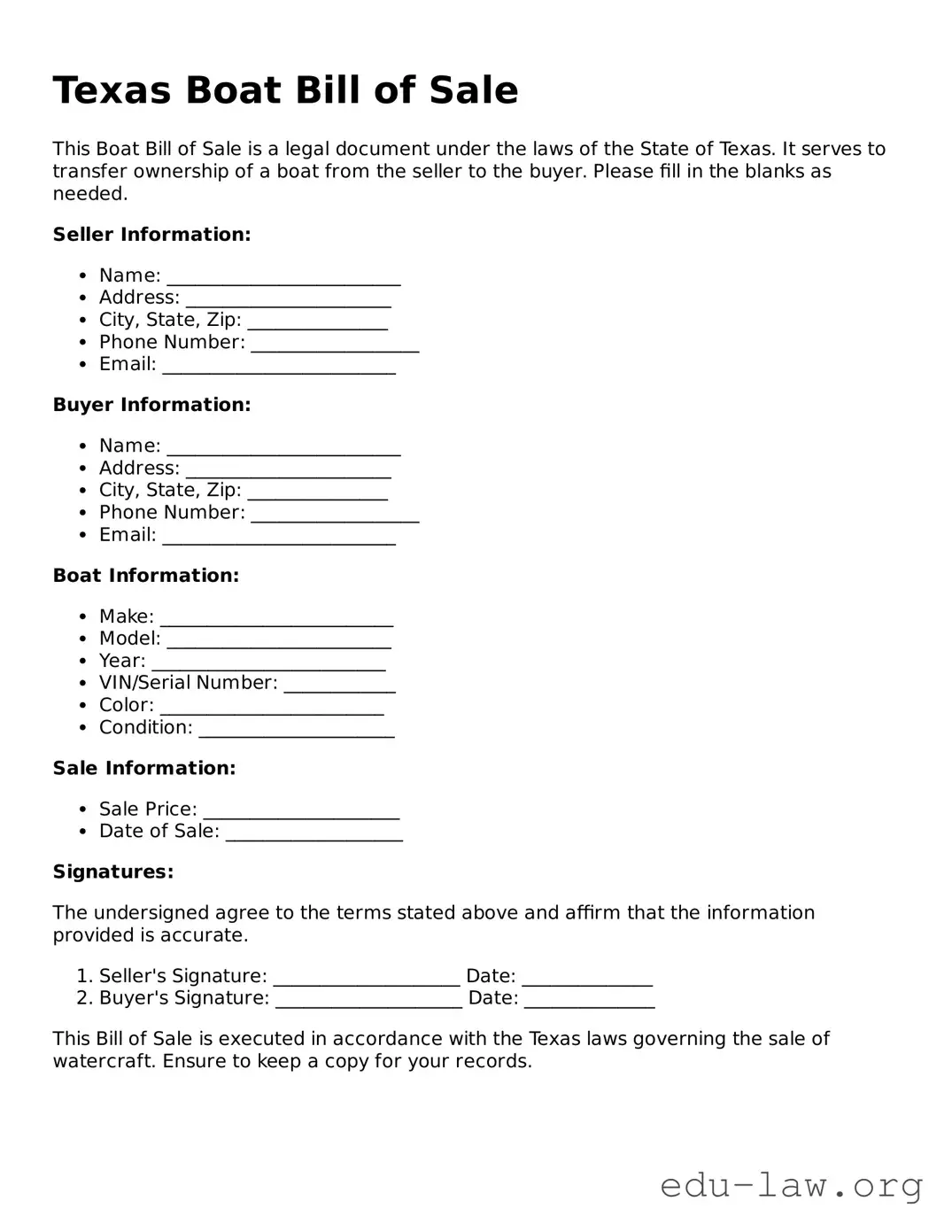What is a Texas Boat Bill of Sale?
A Texas Boat Bill of Sale is a legal document that records the transfer of ownership of a boat from one party to another. It serves as proof of sale and includes essential details about the transaction, ensuring both the seller and buyer are protected under state laws.
Why is a Boat Bill of Sale important?
This document is essential for several reasons. It provides evidence that a sale took place, it outlines the terms agreed upon by both parties, and it helps establish a clear chain of ownership, which can be critical for future registrations and during any disputes.
What information is typically included in the form?
A typical Texas Boat Bill of Sale includes the full names and addresses of the buyer and seller, the boat's make, model, year, and hull identification number (HIN), the purchase price, the date of sale, and any conditions or warranties related to the sale. Some sellers may also include a statement about the boat's condition.
Do I need to notarize the Boat Bill of Sale?
Notarization is not required by Texas law for a Boat Bill of Sale, but it is recommended. Having the document notarized adds an extra layer of authenticity and can help prevent disputes about the sale in the future.
Is the Boat Bill of Sale required for registration?
Yes, to register a boat in Texas, the buyer must present the Bill of Sale to the Texas Parks and Wildlife Department. The document is crucial for establishing ownership and ensuring the boat is registered under the new owner's name.
What if the boat is sold without a Bill of Sale?
If a boat is sold without a Bill of Sale, the transaction may not be legally recognized. This can lead to complications in registering the boat, proving ownership, and addressing any liability issues that arise after the sale.
Can I create my own Bill of Sale?
Yes, you can create your own Bill of Sale. However, ensure that it contains all essential elements outlined earlier. Many online templates are also available, which can simplify the process and ensure that the document meets the state's requirements.
How can I obtain a Texas Boat Bill of Sale form?
Obtaining a Texas Boat Bill of Sale form is straightforward. You can find downloadable templates online or visit your local boat dealership or marine office. Typically, these templates are easy to customize with your specific transaction details.
What should I do if I have questions about the process?
If you have questions about completing a Boat Bill of Sale or any related process, consider reaching out to a legal expert or a marine title service. They can provide valuable guidance and ensure that all necessary steps are followed correctly.
